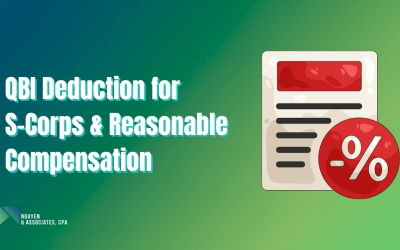
Statute of Limitations
The IRS has a 6-year statute of limitations for filing taxes. If you have not filed in 6 years or less, you can still get those returns filed. If it has been longer than 6 years, you should seek the advice of a CPA, an Enrolled Agent, or a tax attorney as to how you should proceed. The statute of limitations on tax refunds differs from the 6-year statute for filing tax returns. If you are due a tax refund, the statute of limitations is 3 years. This means that if you are due a refund on your taxes from 4 or more years ago and you have not filed those returns yet, you will not receive that refund. Essentially you forfeited the money you were due because you failed to file your tax returns on time. Seek professional help Seeking the help of a tax professional is strongly advised when you have fallen behind on filing your tax returns. Once given power of attorney, a tax professional can investigate each individual year with the IRS and determine what the appropriate next steps are. This is called a compliance check and allows the tax professional to determine what actions the IRS has taken on your account and then plan and react accordingly. The compliance check can also save you money by allowing your tax professional to determine if there are certain years that you are not required to file. IRS Transcripts You tax professional will submit a request to the IRS for your tax transcript. Transcripts are basically a raw data dump of all your income information and deduction information such as IRA deductions, or mortgage interest that has been reported to the IRS via a tax form such as a W-2, 1099, 1098, or 5498. The transcript helps because if you have not filed in several years, you may no longer have the forms you need to file your taxes, but that information will be documented in the transcript. The transcripts will give a good outline on what should be reported to the IRS on your tax return. Unfortunately, the transcripts only contain federal information, they will not have any state information such as state taxes that were withheld on your W2s. To obtain your state tax information, your tax professional will need to contact the state agency directly. Next Steps Once your IRS transcripts are obtained, your tax professional will have to do additional research to be able to accurately report your income and determine your income taxes. There are many sources of income that might not get reported accurately.
- For example, if you own a retail candy shop and you have been in business for 5 years and your business has been profitable for those 5 years, those profits are likely not reported accurately to the IRS. In this case many of your sales transactions could have been cash transactions which do not get reported to the IRS automatically. Credit card income will likely be reported cash sales are not getting reported to the IRS. You will need to work with your tax professional to determine your true income, what has been reported to the IRS, and what has not been reported.
- Self-employment income is not usually reported to the IRS either. However, if you are an independent contractor and you receive a 1099, that income will be reported to the IRS.
- Another thing that might not be reported to the IRS is rental income. For rental income to be reported to the IRS, a 1099 needs to be filed with the IRS by the renter. If you are simply renting out a single property, it is not likely that your tenants are reporting the rent they paid you to the IRS. This information will have to be determined by looking through your personal records, deposit statements and such.
- Items such as dependents and marital status will not be reported to the IRS.
- Business expenses, rental expenses, and cost basis of your fixed assets are also not reported automatically to the IRS.
These are all items that you must track and report to the IRS through the filing of your income taxes. Substitute Tax Returns Often if you do not file your taxes in a timely manner, the IRS will file a substitute tax return for you based on information that they have received. This may lead to you receiving a notice that you owe taxes, interest, and penalties. When the IRS receives income information via a W2, 1099 or other form, they will generate a substitute tax return based on what they have been given. Unfortunately, they do not have access to your business expenses or deductions to offset the income that has been reported to them. This will lead to an inaccurate substitute tax return. It is important to file your taxes on time so that you can accurately report your income, expenses, and the cost basis of any fixed assets that you sold. Bottom Line If you are behind on filing your income tax returns, hire a tax professional. They will clarify the steps that need to be taken to bring you and your business back into compliance with your tax returns. If you are issued a penalty in the future, the IRS will require you to have all your returns filed before they will give you a penalty waiver. You can check out my blog post on IRS penalty abatement here. We are here to help. If you need assistance in preparing and submitting past due tax returns, reach out to us at nguyencpas.com or support@nguyencpas.com and schedule a complimentary consultation with one of our advisors.



